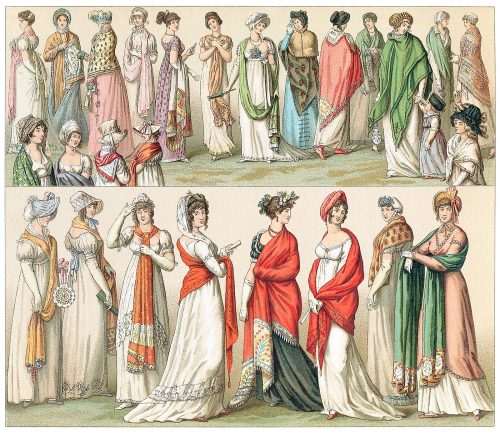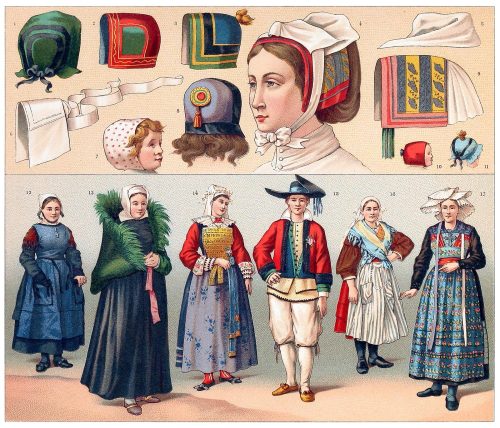
Auguste Racinet, from Le costume historique (The costume history) vol. 6, Paris, 1888.
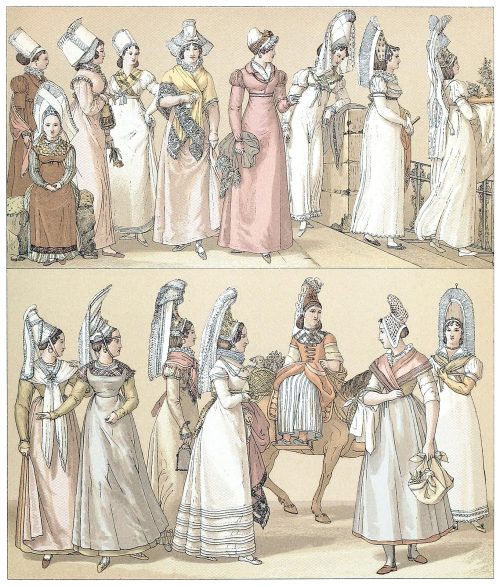
Female costume of Normandy.
Auguste Racinet, from Le costume historique (The costume history) vol. 6, Paris, 1888.
Auguste Racinet, from Le costume historique (The costume history) vol. 6, Paris, 1888.
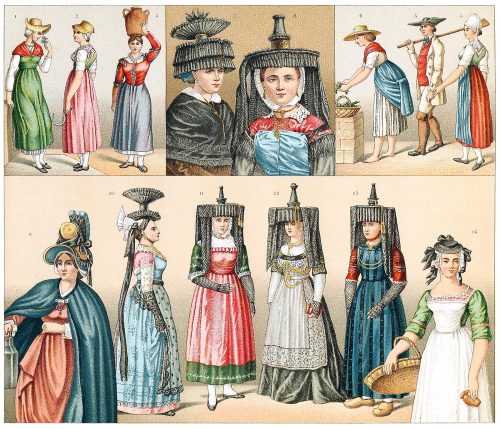
France, 19th century — traditional costumes from Nivernais, Dauphiné, former county of Nice, Mâconnais, Bresse and Bourbonnais.
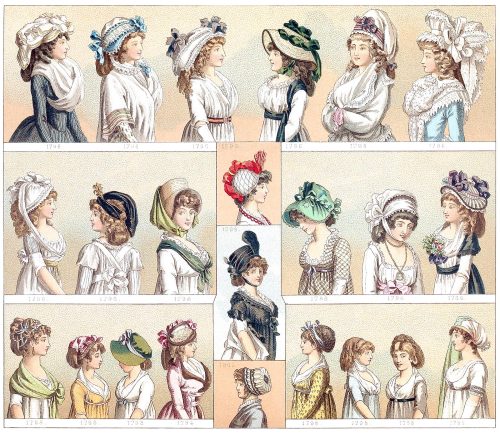
France, 18th century — Headdress and bodice.
Originally published in France between 1876 and 1888, Auguste Racinet's Le Costume Historique was the most wide-ranging and intelligent study of
clothing ever published. Covering the world history of costume, dress,
and style from antiquity through the end of the 19th century, the great
work -- ""consolidated"" in 1888 into 6 volumes containing nearly 500
plates -- remains, to this day, completely unique in its scope and
detail.
Racinet's organization by culture and subject has been preserved
in TASCHEN's magnificent and complete reprint, as have excerpts from
his delightful descriptions and often witty comments. Perusing these
beautifully detailed and exquisitely colored illustrations, you'll
discover everything from the garb of ancient Etruscans to traditional
Eskimo attire to 19th century French women's couture. Though Racinet's
study spans the globe from ancient times through his own,
